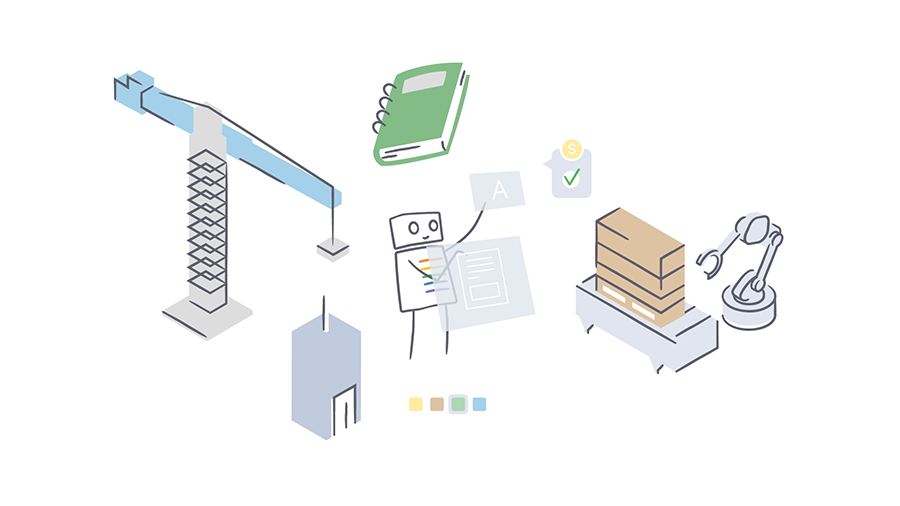
Business processes: 4 tips to simplify them

In your company if someone is missing is it impossible to understand what he was doing and how to replace him?
Do you feel that in your company there are departments that almost look like competing companies?
In your company do you know where you are or do you have to go around the 7 churches? Do you know what are the components to take action to reduce waste, non-compliance, returns or you proceed on sight?
Is there a riot of Excel sheets created in your company in an attempt to manage complexity that gets out of hand?
These and other problems arise from a wrong (or failed) organization of processes.
For solutions we could talk about the digital transformation that is becoming a "must have" for many companies in order not to lag behind or simply to continue to be competitive. But what exactly does this digitization mean and how can it simplify business processes?
Here are 4 tips to simplify processes through digitization:
1) Drop pen and paper
Everything a company does is collected in a documentation that can be a drawing, a request, a report, a purchase or sale contract and so on and so forth (even those thousand post-its that populate your desk).
But every document, every idea, does not necessarily have to be just in a sheet of paper but has to be digitized. We don’t hate paper or stationery, but it’s hard to look for data on a piece of paper when these sheets turn into mountains.
Choose one tool that allows you to store all of your knowledge business.
2) Organize documents in a "large" container
To cope with the management of all business documentation, you need to rely on a system where, although many can support documents, everything remains *ordered, classified and organized without a treasure hunt every time you look for a document that is 3, 5 or 10 years old.
The ideal would be to have a single container or a container able to draw information from what already exists in your company to have a "natural glue".
3) Don’t do it manually if you can automate it
There are so many things that companies do manually because they think they will spend too much by automating them. It’s actually not just a matter of saving time but reducing errors and increasing efficiency.
Here are some examples:
- Having an automatic method that lets you know if you’ve actually done that object before allows you to reduce the number of specials.
- Automations reduces the continuous flow of emails and calls between departments to coordinate activities. Taking as an example the production department, an automation would allow already to the arrival of the order to pass directly to the production if all the raw materials were available to warehouse and there were bills and cycles ready.
- You can speed up business negotiations with automated and standardized production of documents and quotes.
- The automatic data analysis allows you to understand errors in time and reorganize processes without suffering losses or delays.
- Thanks to the IoT technologies, interventions and maintenance can be automatically programmed starting from the signalling of the machinery or historical analyses, thus reaching the territory of predictive maintenance.
4) Harness the power of collaboration
In-house collaborative systems (not only between people but also between technologies used) are of paramount importance to improve business processes and help team up. Effective collaboration is the key to a company’s success. It allows faster troubleshooting, higher work quality and efficiency.
Here are some practical examples of collaborative systems application results:
- With an "X" system every user, close to the work centre, with a simple tablet can always know what to do, consult the 2D and 3D drawings, see how to manage the setup, track the time by pressing on the Start and End buttons or via a bar-readercode or QR code
- With an "X" system at the end of processing the machine or the operator can immediately check, report any anomalies or provide suggestions for continuous improvement
- With an "X" system the transition between what has been sold by the commercial to what must be designed and produced does not require to redo the choices that others have already made just because they use containers that do not speak.
If you then ask us we could tell you that that system "X" able to respond to your needs is called SolidRules.
More by Alexide
Are you ready for the Big Data era?
Data ManagementWhich product configurator to choose?
Product configuratorAny question? We are here for you.
Fill out the form or send us an email to info@solidrules.com. We will contact you to provide you all the solutions.










